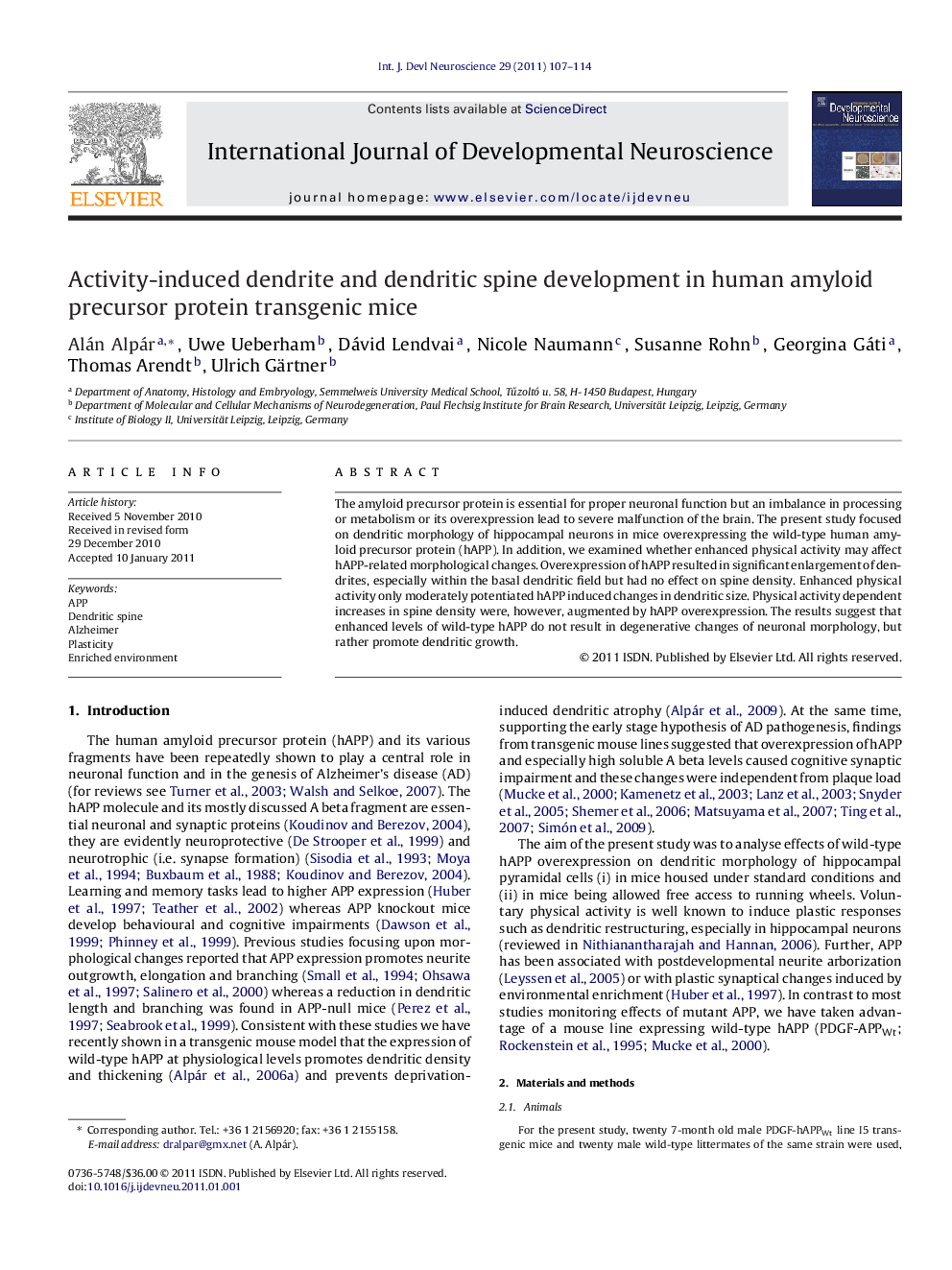| Article ID | Journal | Published Year | Pages | File Type |
|---|---|---|---|---|
| 5893967 | International Journal of Developmental Neuroscience | 2011 | 8 Pages |
The amyloid precursor protein is essential for proper neuronal function but an imbalance in processing or metabolism or its overexpression lead to severe malfunction of the brain. The present study focused on dendritic morphology of hippocampal neurons in mice overexpressing the wild-type human amyloid precursor protein (hAPP). In addition, we examined whether enhanced physical activity may affect hAPP-related morphological changes. Overexpression of hAPP resulted in significant enlargement of dendrites, especially within the basal dendritic field but had no effect on spine density. Enhanced physical activity only moderately potentiated hAPP induced changes in dendritic size. Physical activity dependent increases in spine density were, however, augmented by hAPP overexpression. The results suggest that enhanced levels of wild-type hAPP do not result in degenerative changes of neuronal morphology, but rather promote dendritic growth.
Research highlights⺠Overexpression of wild-type hAPP promotes dendritic growth but not dendritic spine establishment. ⺠Overexpression of wild-type hAPP potentiates dendritic spine development but not dendritic growth in voluntary physical activity. ⺠Dendritic and dendritic spine changes in PDGF-hAPP transgenic mice are due to full length APP effects with a possible role of reduced β-C-terminal beta-fragments level in activity-dependent formation of spines.
